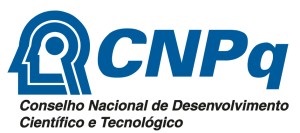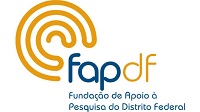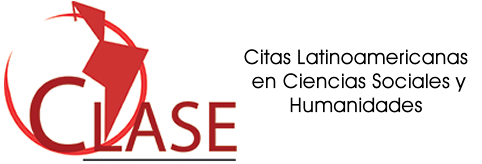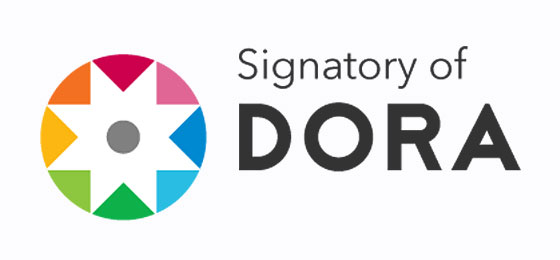What is neoliberalism? The renewal of the debate in social sciences
DOI:
https://doi.org/10.1590/s0102-6992-201934010009Keywords:
Neoliberalism, Social sciences, Criticism, Definition, History of the conceptAbstract
The concept of neoliberalism has been retaken by the social sciences since 2000s, with the reopening of the international debate that seeks to give more precise definitions in its critical aspect. The main arguments against the use of the concept are analyzed and its use is defended due to its strategic importance. Definitions are grouped according to the main sociological theories, separating between those that present an "essence" of Neoliberalism (Foucaultian, Marxian, Bourdieusian and Weberian theories) and those that prefer to deal with the multiplicity of singular historical and geographical manifestations, emphasizing the hybrid character of neoliberalism (post-colonialist, governmental hybridism and neoregulationist theories). It concludes by pointing to the complementarity of the targets, but also to the strategic implications of different theoretical options, especially regarding the diagnosis of the "death" of neoliberalism after the financial crisis of 2008.
Downloads
References
ANDERSON, P. Balanço do neoliberalismo. In: SADER, E.; GENTILI, P. (Orgs.). Pós-neoliberalismo: as políticas sociais e o Estado democrático, p. 9-23. Rio de Janeiro: Paz e Terra, 1995. [ Links ]
ANDRADE, D. P. Emotional economic man: power and emotion in the corporate world. Critical Sociology, v. 44, n. 4-5, p. 785-805, 2015. [ Links ]
ANDRADE, D. P.; OTA, N. Uma alternativa ao neoliberalismo. Entrevista com Pierre Dardot e Christian Laval. Tempo Social, v. 27, n. 1, p. 275-316, 2015. [ Links ]
BOAS, T.; GANS-MORSE, J. Neoliberalism: from new liberal philosophy to anti-liberal slogan. Studies in Comparative International Development, v. 44, n. 2, p. 137-161, 2009. [ Links ]
BOURDIEU, P. Las estructuras sociales de la economia. Buenos Aires: Manatial, 2001. [ Links ]
____ . Contrafogos. Rio de Janeiro: Zahar, 1998. [ Links ]
BRENNER, N.; THEODORE, N. Cities and geographies of «actually existing neoliberalism». Antipode, v. 34, n. 3, p. 349-379, 2002. [ Links ]
BROWN, W. Les habits neufs de la politique mondiale. Néolibéralisme et néo-conservatisme. Paris: Les Prairies Ordinaires, 2003. [ Links ]
CLARKE, J. Living with/in and without neoliberalism. Focaal, v. 51, n. 1, p. 135-147, 2008. [ Links ]
COLLIER, S. Neoliberalism as big Leviathan, or ...? A response to Wacquant and Hilgers. Social Anthropoly, v. 20, n. 2, p. 186-195, 2012. [ Links ]
DARDOT, P.; LAVAL, C. Commun. Essai sur la revolution au XXIe siècle. Paris: La Découverte, 2014. [ Links ]
____ . Introduction to the English Edition. In: DARDOT, P.; LAVAL, C. The new way of the world. London; New York: Verso, 2013. [ Links ]
____ . La nouvelle raison du monde. Essai sur la société néolibéral. Paris: La Découverte, 2009. [ Links ]
DAVIES, W. The limits of neoliberalism. Authority, sovereignty and the logic of competition. Los Angeles; London; New Delhi : Sage, 2014. [ Links ]
DUMÉNIL, G.; LÉVY, D. A crise do neoliberalismo. São Paulo: Boitempo, 2014. [ Links ]
FOUCAULT, M. Naissance de la biopolitique. Paris: Seuil; Gallimard, 2004. [ Links ]
GIANTI, T. Neoliberalism. Annual Review of Anthropology, v. 43, p. 89-104, 2014. [ Links ]
GIBSON-GRAHAM, J.-K. Diverse economies: performative practices for “other worlds”. Progress in Human Geography, v. 32, n. 5, p. 613-632, 2008. [ Links ]
GOLDSTEIN, D. Decolonialising “actually existing neoliberalism”. Social Anthropoly, v. 20, n. 3, p. 304-309, 2012. [ Links ]
HABER, S. Analiser le néolibéralisme aujourd’hui: les pistes de la recherche actuelle. In: HABER, S. Penser le néocapitalisme, p. 127-144. Paris: Les Prairies Ordinaires, 2013. [ Links ]
HARDT, M.; NEGRI, T. Commonwealth. Cambridge (MA); London: Harvard University Press, 2007. [ Links ]
HARVEY, D. O neoliberalismo. História e implicações. São Paulo: Loyola, 2008. [ Links ]
HILGERS, M. The historicity of the neoliberal state. Social Anthropology, v. 20, n. 1, 2012. [ Links ]
____ . The three anthropological approaches to neoliberalism. International Social Science Journal, v. 61, p. 351-363, 2011. [ Links ]
LAVAL, C. Foucault, Bourdieu et la question néolibérale. Paris: La Découverte, 2018. [ Links ]
LEMKE, T. “The birth of biopolitics”: Michel Foucault’s lectures at the Collège de France on neoliberal governmentality. Economy and Society, v. 30, n. 2, p. 190-207, 2001. [ Links ]
MIROWSKI, P. Never let a serious crises go to waste: how neoliberalism survived the financial meltdown. London: Verso, 2013. [ Links ]
MIROWSKI, P.; PLEHWE, D. The road from Mont Pèlerin. The making of the neoliberal thought collective. Cambridge (MA); London: Harvard University Press, 2009. [ Links ]
MUDGE, S. What is neo-liberalism? Socio-economic Review, v. 6, n. 1, p. 703-731, 2008. [ Links ]
NEGRI, T. La metafisica del comune. Il Manifesto. Roma, 5 maio 2014. [ Links ]
ONG, A. Neoliberalism as a mobile technology. Transactions of the Institute of British Geographers, v. 32, p. 3-8, 2007. [ Links ]
____ . Neoliberalism as exception. Mutations in citizenship and sovereignty. London: Duke University Press, 2006. [ Links ]
PECK, J. Constructions of neoliberal reason. Oxford (UK): Oxford University Press, 2010. [ Links ]
____ . Remaking laissez-faire. Progress in Human Geography, v. 32, n. 1, p. 3-43, 2008. [ Links ]
PECK, J.; THEODORE, N. Reanimating neoliberalism: process geographies of neoliberalisation. Social Anthropology, v. 20, n. 2, p. 177-185, 2012. [ Links ]
PECK, J.; THEODORE, N.; BRENNER, N. Neoliberalism resurgent? Market rule after Great Recession. The South Atlantic Quarterly, v. 111, n. 2, p. 265-288, 2012a. [ Links ]
____ . Mal-estar no pós-neoliberalismo. Novos Estudos Cebrap, n. 92, p. 59-78, 2012b. [ Links ]
POOVEY, M. Stories we tell about liberal markets: the eficiente market hypothesis and great-men narratives of change. In: GUNN, S.; VERNON, J. The peculiarities of liberal modernity in imperial Britain, p. 199-212. Berkeley (CA): University of California Press, 2011. [ Links ]
SPEKTER, M. Introduction to Foucault and neoliberalism. History and theory, v. 54, 2015. [ Links ]
VENUGOPAL, R. Neoliberalism as concept. Economy and Society, v. 44, n. 2, p. 165-187, 2015. [ Links ]
WACQUANT, L. Three steps to a historical anthropology of actually existing neoliberalism. Social Anthropology, v. 20, n. 1, p. 66-79, 2012. [ Links ]
ZAMORA, D. Critiquer Foucault. Brussels: Aden, , 2014. [ Links ]




.jpg)



















